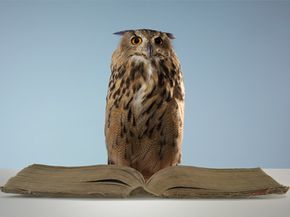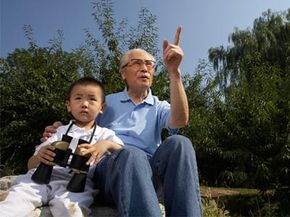Key Takeaways
- Studies from the Berlin Wisdom Project suggest there's a plateau of optimal wisdom performance in middle and old age, with some evidence of wisdom decline starting at age 75.
- Emotional factors and life experiences significantly contribute to wisdom, with older individuals often showing a greater ability to manage emotional responses and maintain positivity in challenging situations.
- The concept of wisdom evolves with age, influenced by an individual's accumulated experiences, changes in the perception of time, and the development of values such as empathy and resilience through different life stages.
In many cultures, the owl represents wisdom. From an association with Athena, the Greek goddess of wisdom, and appearances in Aesop's fables to more recent cameos in A.A. Milne's "Winnie the Pooh," the owl is a go-to symbol of sagacity. Even if you just want to know how many licks it takes to get to the Tootsie Roll center of a Tootsie Pop, you should ask an owl, though you risk losing your Tootsie Pop in the name of research.
But who can we turn to for wisdom in the human world? In studies in which participants were asked to nominate individuals that they thought wise, the average age for nominees was about 55 or 60 [source: Sternberg]. Nominees in one specific study included such old-timers as Gandhi, Confucius, Socrates, Queen Elizabeth, the Pope and Ann Landers [source: Sternberg]. Clearly, the public believes that with age comes wisdom.
Advertisement
Is age a prerequisite for wisdom, though? We all know a few elderly people who lack wisdom, while we may know few young people that have wisdom in spades. People certainly aren't always at peak brainpower in old age; after all, when wrinkles begin appearing on the face, it usually means that wrinkles have started disappearing on the brain. The brain shrinks slightly with age, and aging leads to a normal decline in cognitive function that may eventually bloom into dementias such as Alzheimer's disease.
While philosophers and religious traditions have provided readings on the nature of wisdom for centuries, the concept didn't become a subject of scientific study until 1950. That's when psychoanalyst Erik Erikson created an eight-stage theory of the human life cycle. In each stage, a person faces an internal struggle that develops different aspects of personality. For example, an infant's struggle is the battle between trust and mistrust; when infants feel they can trust those around them, they develop a sense of hope [source: Goleman]. In Erikson's last stage, old age, people grapple with the balance between their personal sense of integrity and defeat in the face of death and physical disintegration. If integrity wins out, then the result, according to Erikson, is wisdom.
Erikson's work paved the way for further psychological study of wisdom and its relation to age. However, Erikson didn't define what he meant by wisdom, and as you might imagine, such a big idea can be hard to reduce to a simple lab test. So what do we mean by wisdom, and just who possesses it? We'll take a look at some theories about whether we get wiser with age on the next page.
Advertisement



